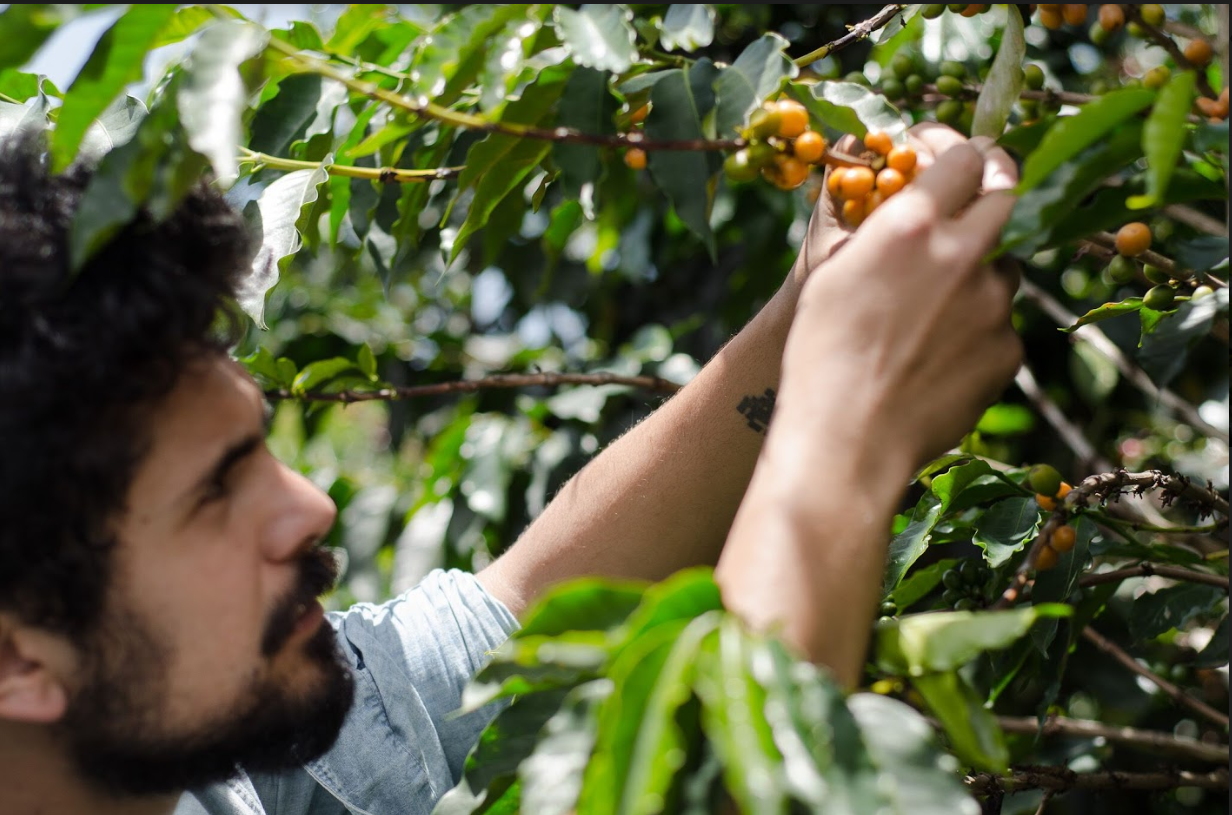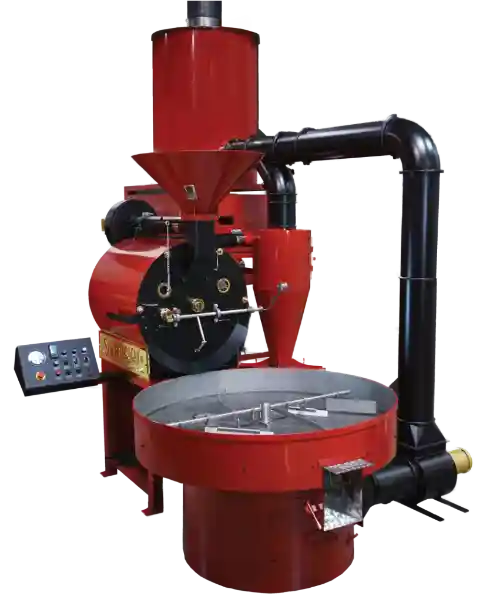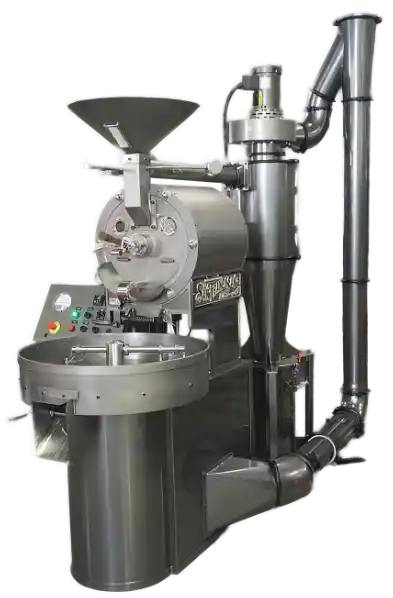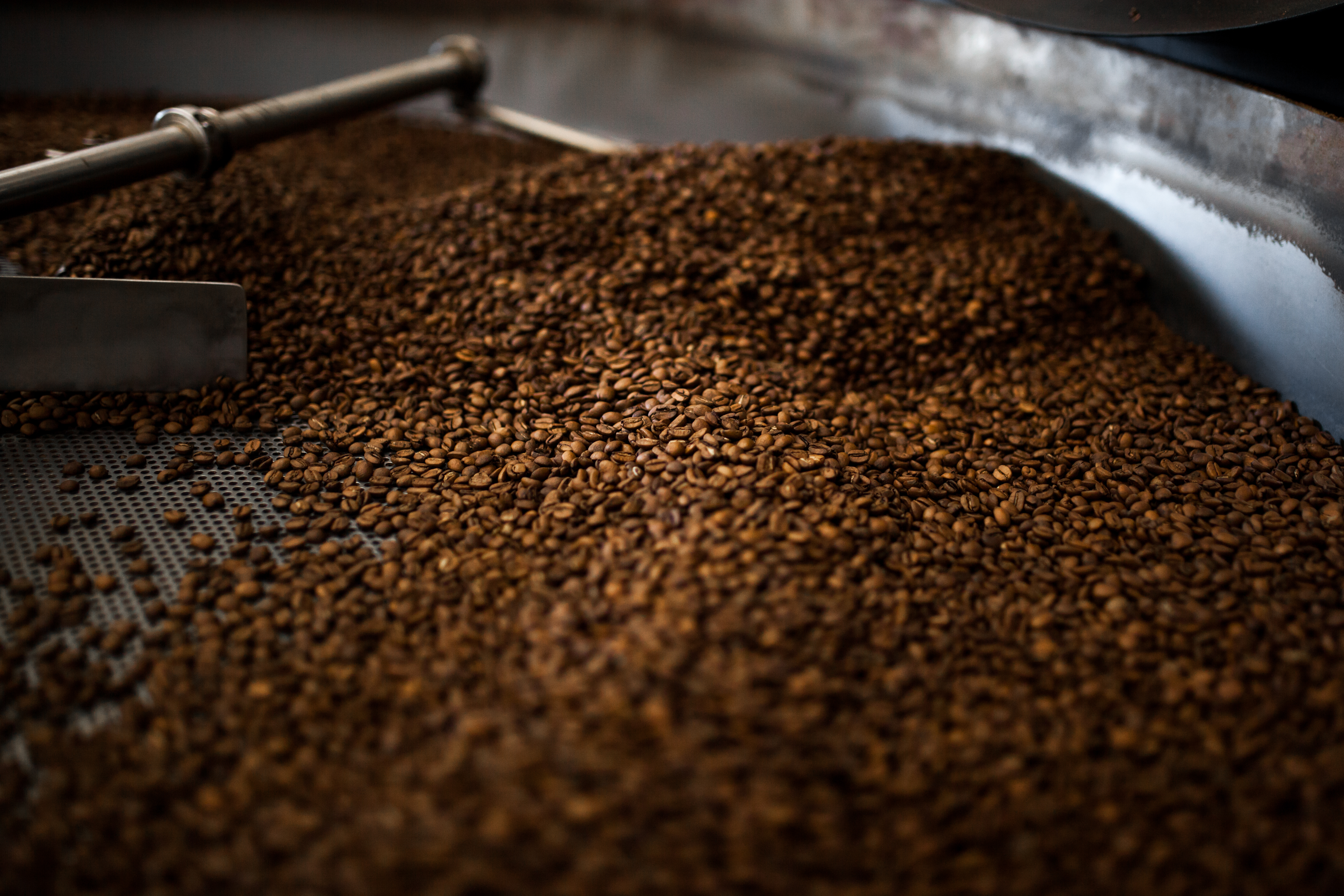Two Linked Fates: How Bees Play a Role in Coffee Growth and Sustainability
 If you’re like us, you’ve probably seen hundreds, if not thousands of different kinds of “Save the Bees!” campaigns. Whether on social media, TV, or in person, people have been using their voices to help spread the word about the importance of bees, how they help the environment, and the current danger they are facing of possibly going extinct.
If you’re like us, you’ve probably seen hundreds, if not thousands of different kinds of “Save the Bees!” campaigns. Whether on social media, TV, or in person, people have been using their voices to help spread the word about the importance of bees, how they help the environment, and the current danger they are facing of possibly going extinct.
Like these campaigns state, bees do play a significant role in nature, beyond just producing honey. Specifically, they help with pollination. When bees fly from flower to flower, plant to plant to consume nectar, they take pollen with them, quickening the pollination process. This pollination, in turn, helps nature thrive, flowers blossom, trees grow, and to make food possible. Their role in pollination means they serve a role in the food chain, in the supply chain, and in the economy. Without them, so many foods, flowers, and other aspects of our world would be lost. Everyday food items such as almonds, squash, berries, vanilla, and more would be hard to come by. Not only that but hundreds of beautiful species of flowers and plants would be unable to thrive in this new environment.
One such plant/food is coffee. Without bees, coffee production would dwindle and become much more difficult to accomplish. So, in a way, bees are tied to coffee sustainability.
Here’s what you need to know.
The Role of Bees in Coffee Sustainability
According to Friends of the Earth, 90% of the world’s leading crops are affected by bees, and not just honeybees and bumblebees, which are arguably the two people are most familiar with, which is to say that bees also play a role in coffee pollination.
As you know, coffee is grown around the world, including Asia, Africa, South America, and even a couple of states in the United States. Because of this, thousands of types of bees affect coffee pollination. Without bees assisting with coffee pollination, fewer crops will be yielded and even coffee plants that are planted on farms will decrease because this quick, natural pollination process will be eliminated. According to research conducted by York University, bees help to increase seed mass and fruit retention, and can lead to more mature fruits being yielded, all of which positively impact the growth of healthy and fruitful coffee plants.
While other issues regarding coffee sustainability are at play, the disappearance of bees would lead to massive issues in the coffee industry.
What’s Happening to Bees?
The bee population has significantly dwindled over the past decade. Issues such as harmful pesticides, global warming, and loss of habitat have all contributed to the significant loss of population. Not only that, but many people have negative perception about bees because of their stingers. Many associate them with the more harmful wasp or yellow jacket. This negative perception may also lead to a lack of knowledge and/or empathy for the world’s bee population. This coupled with a changing environment, harmful chemicals, and increased temperatures, the bees are dying at an alarming rate.
Issues with Coffee Sustainability
Aside from the possible extinction of bees, the coffee industry has faced numerous other factors that have affected coffee production and sustainability. It’s no secret that coffee is a popular drink, and this affinity for it has led to poor coffee growing habits led by corporations looking for easy ways to grow coffee and cut back their expenses by doing so in unsustainable ways. Coffee production and sustainability is nothing new but has come to the forefront of the industry because of issues like global warming, loss of the overall bee population, and unsustainable practices.
What We Can Do
Thankfully, there are different ways that coffee farmers, roasters, shop owners, and consumers can help aid in sustainable coffee production practices. Aspects of coffee sustainability include ensuring producers are paid fairly, areas of biodiversity are protected, and harmful practices are eliminated altogether. While many small businesses, independent producers, and corporations have all picked up greener, more sustainable practices, there are still many who cut down rain forests, skimp on paying producers, and do other harmful things, such as using the very pesticides that are killing off bees, all of which is harming the environment, the coffee industry, and most importantly, the people involved in coffee production. Avoiding these practices and making greener ones more commonplace can help alleviate the issues caused by poor practices.
How Coffee Roasters Play a Role
Coffee roasters and the specialty coffee industry can help with sustainability by ensuring that the coffee they purchase is sustainably sourced, establishing greener practices, minimizing the energy they use, and adopting tools and practices that can them give back to mother nature. The Specialty Coffee Association of America has numerous resources that roasters can utilize to minimize their impact on the environment. Together, we can make a better world for producers, roasters, consumers, and beyond.










